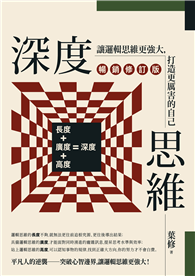In spite of the economic role of oil, Venezuela has started developing hydroelectricity since the 1950s. The adoption of this renewable energy source was part of a development policy to produce and manufacture industrial goods. At present, the country is trying to introduce additional renewable energy sources (RES) but still has to overcome a series of hurdles in order to deploy them. Unlike other developing countries, oil countries such as Venezuela do not lack financial means and sometimes show a tendency to solve problems by using money when other approaches could be more helpful. The main goal of this qualitative, comparative policy analysis then is to find out whether the availability of oil revenues restraints or favors the adoption of RES. Based on the rentier state theory, Germán Massabié examines the reasons why Petro states try to dispose of their natural wealth to take advantage of non-conventional energy sources. He analyses and interprets primary and secondary data collected in Germany and in Venezuela and draws on non-standardized interviews, informal conversations, and e-mail exchanges with Venezuelan experts, policy makers, and key actors. The study allows a look beyond laws, development programs, and official statements.
| FindBook |
有 1 項符合
Venezuela: A Petro-State Using Renewable Energies: A Contribution to the Global Debate about New Renewable Energies for Electricity Generation的圖書 |
 |
Venezuela: A Petro-State Using Renewable Energies: A Contribution to the Global Debate about New Renewable Energies for Electricity Generation 作者:Massabié 出版社:Vs Verlag Fur Sozialwissenschaften 出版日期:2008-05-15 語言:英文 規格:平裝 / 274頁 / 21.01 x 14.81 x 1.57 cm / 普通級/ 初版 |
| 圖書館借閱 |
| 國家圖書館 | 全國圖書書目資訊網 | 國立公共資訊圖書館 | 電子書服務平台 | MetaCat 跨館整合查詢 |
| 臺北市立圖書館 | 新北市立圖書館 | 基隆市公共圖書館 | 桃園市立圖書館 | 新竹縣公共圖書館 |
| 苗栗縣立圖書館 | 臺中市立圖書館 | 彰化縣公共圖書館 | 南投縣文化局 | 雲林縣公共圖書館 |
| 嘉義縣圖書館 | 臺南市立圖書館 | 高雄市立圖書館 | 屏東縣公共圖書館 | 宜蘭縣公共圖書館 |
| 花蓮縣文化局 | 臺東縣文化處 |
|
|
圖書介紹 - 資料來源:博客來 評分:
圖書名稱:Venezuela: A Petro-State Using Renewable Energies: A Contribution to the Global Debate about New Renewable Energies for Electricity Generation
|











